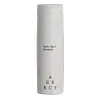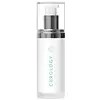What's inside
What's inside
 Key Ingredients
Key Ingredients

 Benefits
Benefits

 Concerns
Concerns

 Ingredients Side-by-side
Ingredients Side-by-side

Hydroquinone 4%
StabilisingKojic Acid 4%
AntioxidantAzelaic Acid 3%
BufferingResveratrol
AntioxidantWater
Skin ConditioningCetearyl Alcohol
EmollientPolysorbate 60
EmulsifyingIsohexadecane
EmollientIsododecane
EmollientC13-15 Alkane
SolventGlyceryl Stearate
EmollientPEG-75 Stearate
Polyacrylate-13
Polyisobutene
Polysorbate 20
EmulsifyingPolyurethane-39
Stearyl Behenate
EmollientCetyl Alcohol
EmollientTocopheryl Acetate
AntioxidantAscorbic Acid
AntioxidantSodium Bisulfite
AntioxidantBenzoic Acid 0.09%
MaskingSorbic Acid 0.09%
PreservativeBHT
AntioxidantPropanediol
SolventHydroquinone 4%, Kojic Acid 4%, Azelaic Acid 3%, Resveratrol, Water, Cetearyl Alcohol, Polysorbate 60, Isohexadecane, Isododecane, C13-15 Alkane, Glyceryl Stearate, PEG-75 Stearate, Polyacrylate-13, Polyisobutene, Polysorbate 20, Polyurethane-39, Stearyl Behenate, Cetyl Alcohol, Tocopheryl Acetate, Ascorbic Acid, Sodium Bisulfite, Benzoic Acid 0.09%, Sorbic Acid 0.09%, BHT, Propanediol
Alternatives
Ingredients Explained
These ingredients are found in both products.
Ingredients higher up in an ingredient list are typically present in a larger amount.
Azelaic acid is a multitasker ingredient that helps treat acne, pigmentation, and irritation. It is a great option for sensitive skin.
What makes azelaic special?
The best thing about azelaic acid is it's gentleness. It's generally well-tolerated and safe to use alongside other actives like niacinamide or salicylic acid.
Unlike AHAs, azelaic acid will not make you photosensitive/sun sensitive.
You can find this ingredient naturally occurring in grains like wheat, rye, and barley. In cosmetics, azelaic acid is typically lab-made, which is more stable and effective.
Learn more about Azelaic AcidBHT is a synthetic antioxidant and preservative.
As an antioxidant, it helps your body fight off free-radicals. Free-radicals are molecules that may damage your skin cells.
As a preservative, it is used to stabilize products and prevent them from degrading. Specifically, BHT prevents degradation from oxidation.
The concerns related to BHT come from oral studies; this ingredient is currently allowed for use by both the FDA and EU.
However, it was recently restricted for use in the UK as of April 2024.
Learn more about BHT